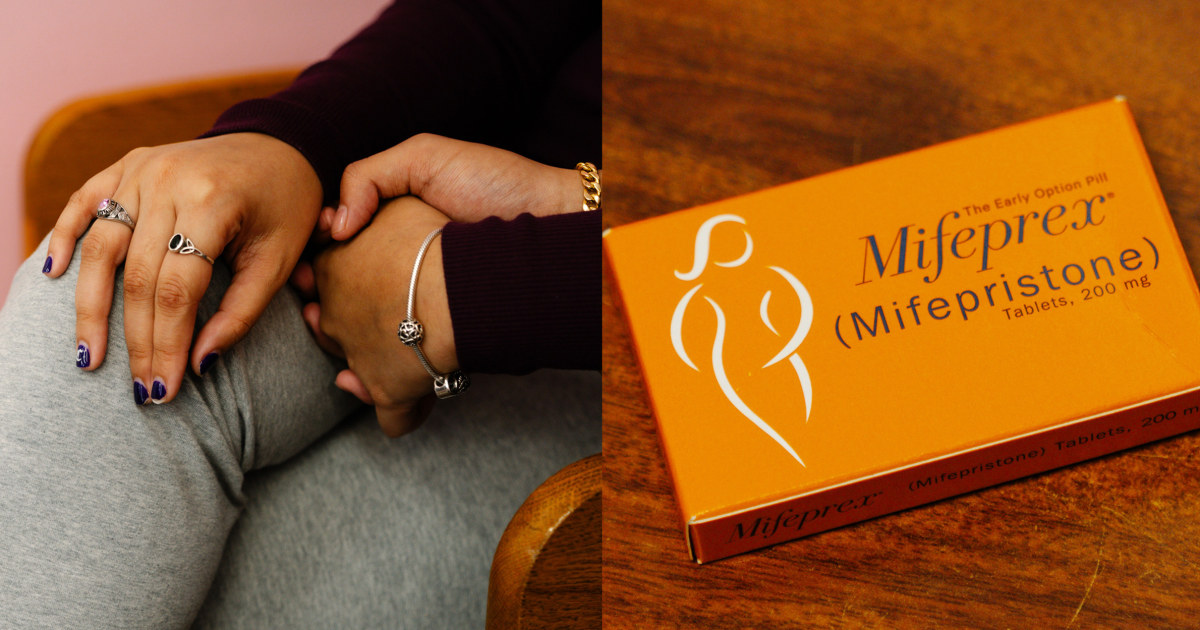They came from Cuba, Venezuela and Haiti. Women who visited a family-owned abortion clinic in a Hialeah shopping center this week reflected the diverse population of immigrants who call Miami-Dade County home.
Like women across the state, they faced a new reality Wednesday: the ban on abortion, with few exceptions, after six weeks of gestation.
On Tuesday, a day before the ban went into effect, a sign at the entrance to Hialeah Woman's Care Center and another on a pink wall in the clinic's waiting room warned patients of the change. The small clinic was packed, with women coming all day, eager to be seen. Some patients were asked to return the next day because the state requires a 24-hour waiting period for abortions.
About three-quarters of the population of Hialeah, a city located 11 miles northwest of downtown Miami, comes from abroad. The shopping streets are full of small shops and fruit sellers occupy many corners.
Some of Tuesday's patients were immigrants from Cuba, where abortion is legal and widely accessible. Others, like a 36-year-old nurse who emigrated from Haiti, were originally from countries where abortion is widely prohibited.
“I didn't even know that a law had been passed,” said the nurse, a mother of two, who visited the clinic with her husband and did not want to give her name to protect her privacy on health issues. “If I hadn't arrived in time, I would have no choice but to have the baby.”
On Wednesday, that possibility seemed much greater as some patients arrived at the clinic, not knowing if it had been on time.
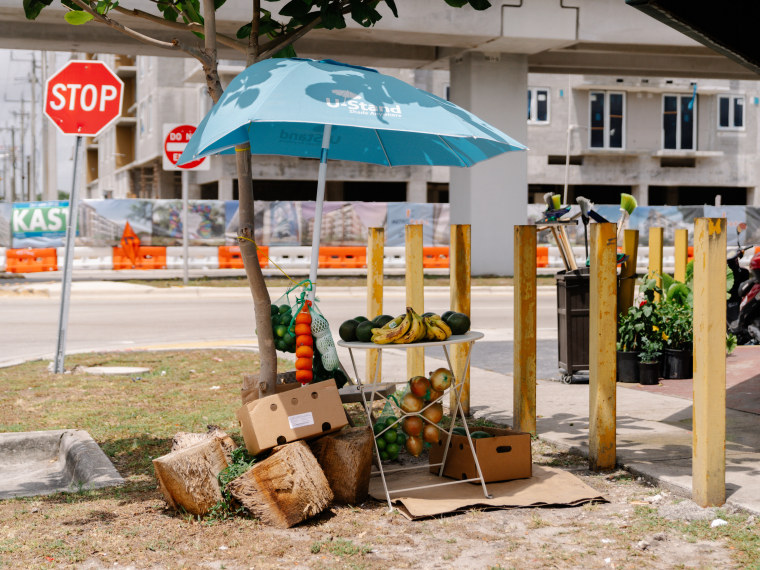
Women across Florida face the new ban, but abortion rights advocates say immigrants to the state and this county – which has the highest proportion of foreign-born residents in the country, according to Census data – will feel the impact more intensely. For example, they may face language barriers or have jobs that do not provide paid time off. For those without legal documentation, the obstacles are even greater.
“Undocumented immigrants are already walking a tightrope,” said Suma Setty, a political analyst at the Center for Law and Social Policy, who has defended immigrants' right to abortion.
“Basically, HE is tightening the tightrope even more” commented on Florida's six-week ban. “And there is no safety net.”
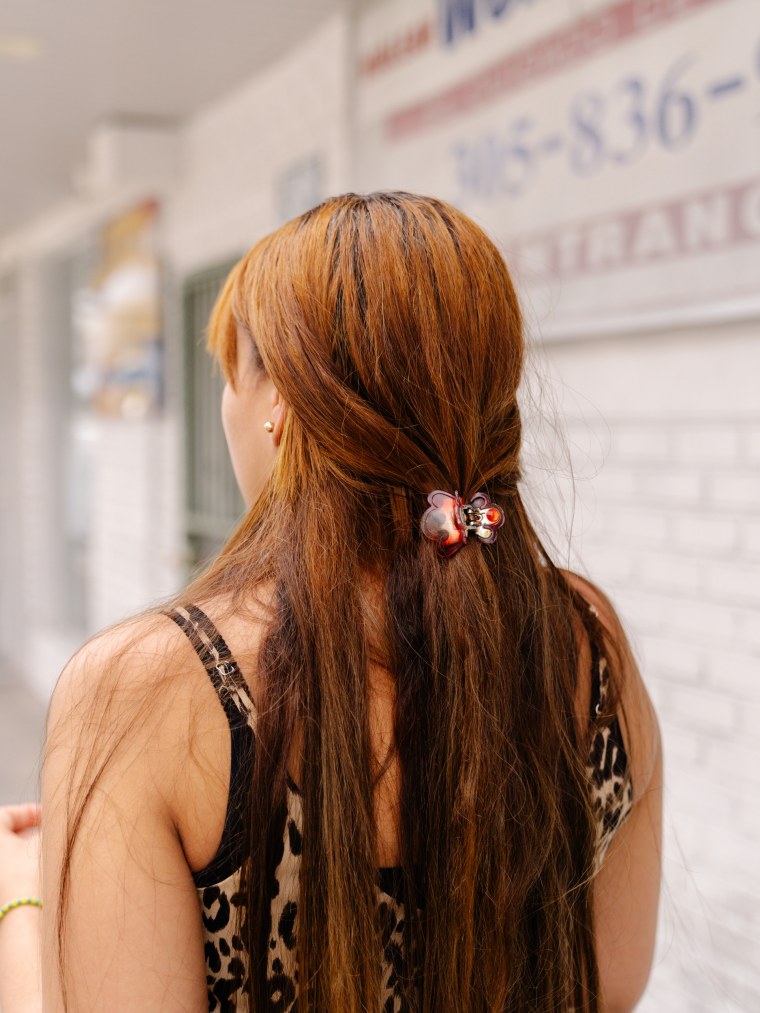
EH, a 28-year-old Cuban immigrant who lives in Jacksonville with her husband and two children, traveled about six hours to Hialeah because she knew about the clinic. She stated Wednesday that she was unaware of the abortion ban until she spoke with NBC News.
She explained why she wanted to have an abortion. “It's not fair to be forced to bring children into the world if you can't care for them properly,” she said.
An ultrasound confirmed that she was about six weeks pregnant and was confident she would be able to undergo the procedure. If she had come a week later, she would have been forced to travel out of state.
Before Wednesday, the state banned most abortions after 15 weeks under a law enacted in 2022. Because the new limit draws the line before many women realize they are pregnant, those who They seek to have the procedure may face traveling hundreds of miles across state lines to clinics in North Carolina and Virginia.
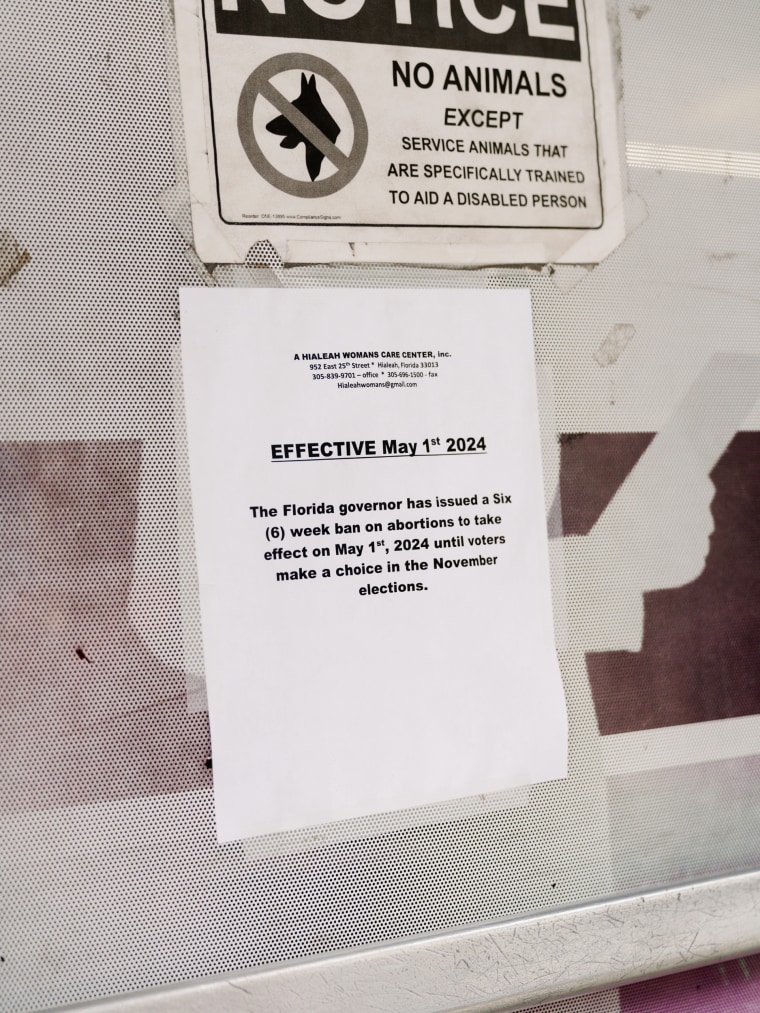
In a process already rife with confusion, abortion rights advocates say the journey can be especially daunting for immigrants. Even basic amenities like front desk staff who speak Spanish, Creole (creole) or French or signs in different languages, may be less frequent outside the region, they indicated.
“I'm a first-generation American and I've seen many members of my own family struggle to access healthcare and navigate all the barriers, and that was before healthcare was criminalized across the country,” Lana'e explains. Hernández, patient advisor for Planned Parenthood of Southwest and Central Florida.
“When these patients have to travel, that alone makes (the mission) 10 times more difficult for them.”
For immigrants in Florida who lack legal documentation, most of whom come from Central and South America, the fear of exposure adds another challenge, especially in the wake of a sweeping immigration law enacted last year that requires Hospitals that accept Medicaid ask patients about their immigration status, among other provisions, making some people reluctant to seek even routine medical care.
Stephanie Loraine Piñeiro, executive director of Florida Access Network, which helps patients pay for abortions and travel to have the procedure, said some people could be subject to electronic monitoring because of their status and not be able to leave the state.
“People are afraid to travel”, he declared. “They are afraid to go to the hospital. So all we can do is encourage them to seek support to see if there is a way to find access to healthcare.”
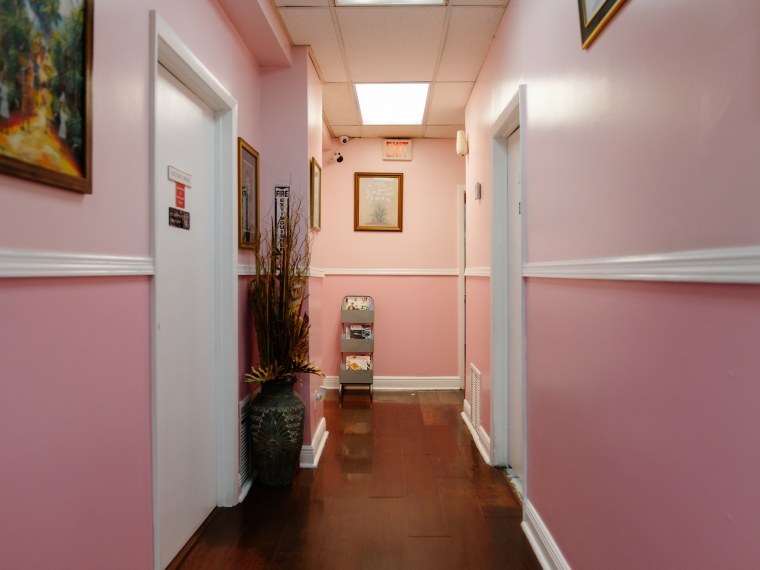
Following the reversal of Roe v. Wade in 2022, Florida was one of the few Southern states without a complete or near-total ban on abortion. More than 9,300 people traveled to Florida from other states to undergo the procedure last year, according to the Guttmacher Institute.
Supporters of the six-week ban have touted the state's plans to spend $25 million on the Florida Pregnancy Network, a state alliance that includes crisis pregnancy centers, which aims to discourage clients from undergo an abortion.
Although the Biden administration has attempted to restrict federal funding for these centers, many states that are rolling back abortion rights lThey have included you in their plans after the annulment of Roand.
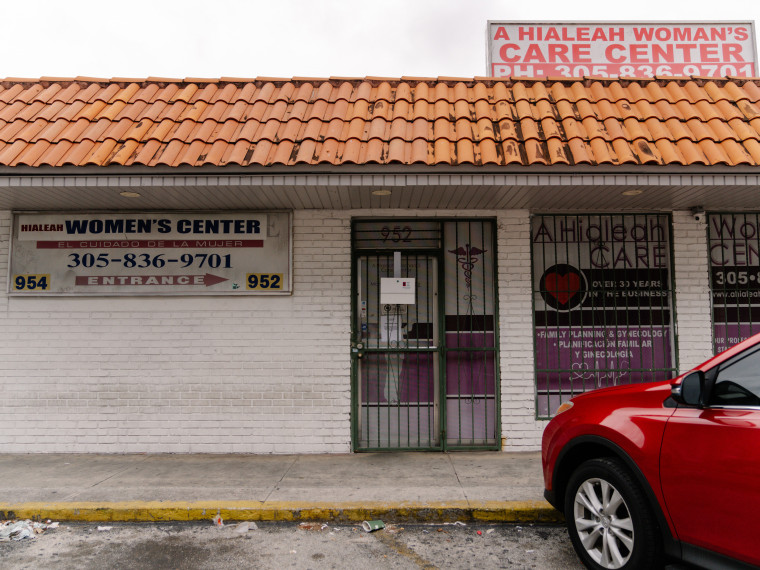
Outside the Hialeah clinic on Wednesday, a small group of women from the anti-abortion group Sidewalk Advocates for Life were handing out red bags containing brochures with information about crisis pregnancy centers, as well as nail polish, cream and perfume.
“There are always resources,” said Kelly Tarazona, the group's metropolitan coordinator for Miami and Fort Lauderdale. “Abortion is not the only option.”
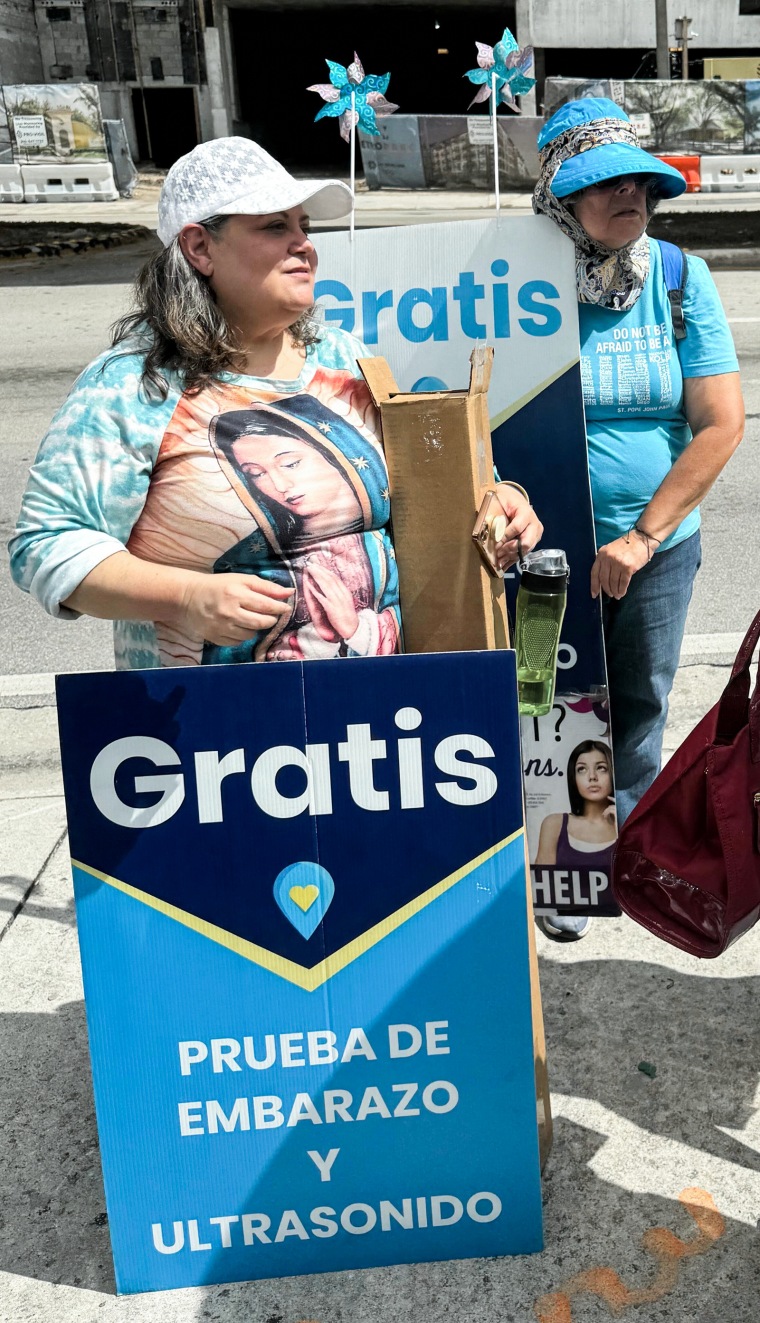
He expanded that pregnancy centers could offer more than an abortion. They would help a woman find shelterfor example, and a job if necessary.
As proponents of the ban celebrated Wednesday, abortion rights supporters are preparing to knock on doors in Hialeah in the coming weeks to unveil the ban ahead of a referendum this fall, which would amend the state Constitution to protect the right to abortion.
“We are not going to give up in Florida”, stressed Charo Valero, state director in Florida of the National Institute of Latinas for Reproductive Justice. “We are fighting back.”

